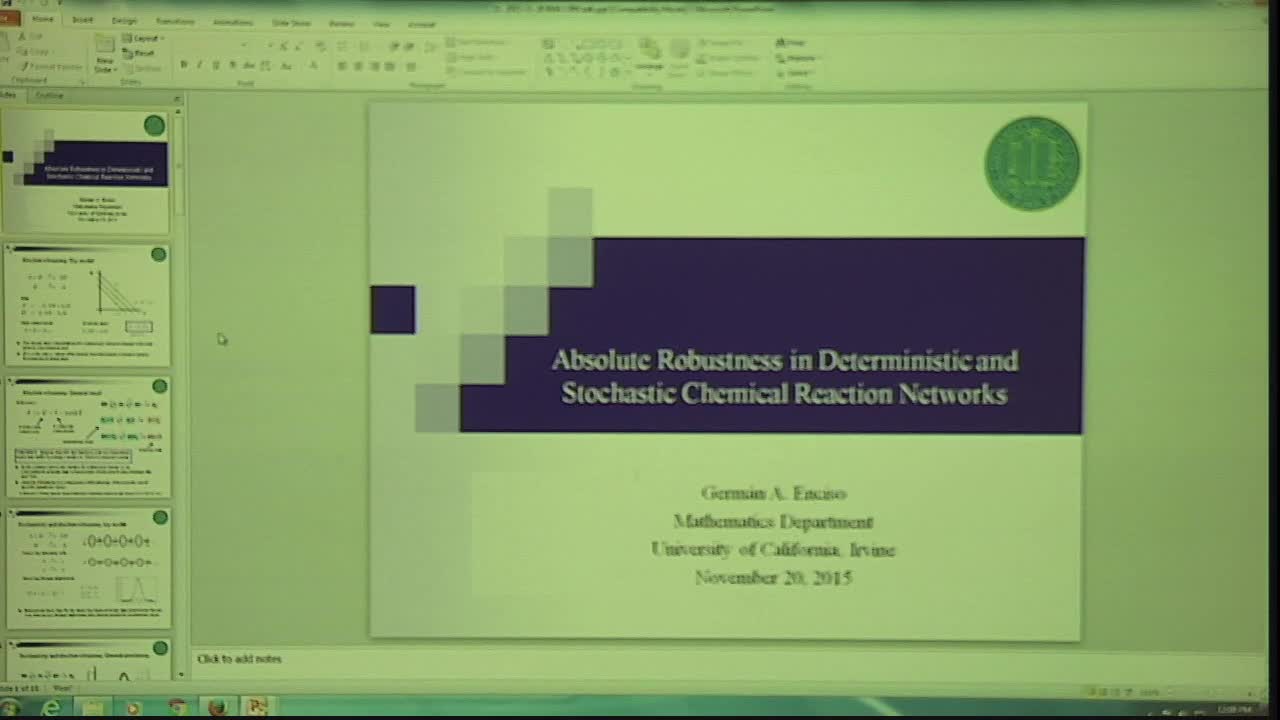Stochastic Analysis of Biochemical Reaction Networks with Absolute Concentration Robustness
Presenter
November 20, 2015
Keywords:
- reaction, biochemical, Stochastic analysis, robustness
MSC:
- 62G35
Abstract
It has recently been shown that structural conditions on the reaction network, rather than a ‘fine-tuning’ of system parameters, often suffice to impart ‘absolute concentration robustness’ on a wide class of biologically relevant, deterministically modeled mass-action systems [Shinar and Feinberg, Science, 2010]. Many biochemical networks, however, operate on a scale insufficient to justify the assumptions of the deterministic mass-action model, which raises the question of whether the long-term dynamics of the systems are being accurately captured when the deterministic model predicts stability. We show here that fundamentally different conclusions about the long-term behavior of such systems are reached if the systems are instead modeled with stochastic dynamics and a discrete state space. Specifically we characterize a large class of models which exhibit convergence to a positive robust equilibrium in the deterministic setting, whereas trajectories of the corresponding stochastic models are necessarily absorbed by a set of states that reside on the boundary of the state space. If the time to absorption is large relative to the relevant time-scales of the system, the process will very likely seem to settle down to an equilibrium long before the resulting instability will appear. This quasi-stationary distribution is considered for two systems taken from the literature, and results consistent with absolute concentration robustness are recovered by characterizing the discrepancy between the quasi-stationary distribution for the robust species and a Poisson distribution.
Joint work with David Anderson and Matthew Johnston.
